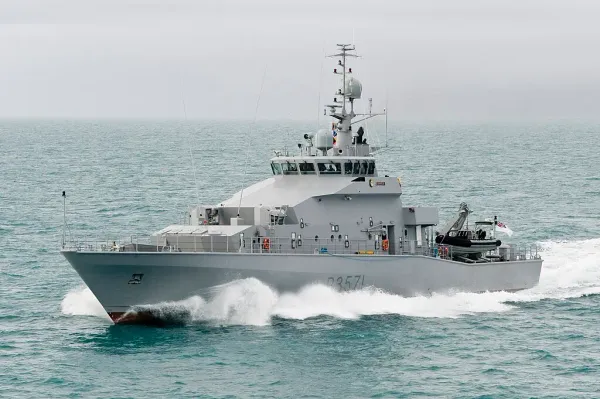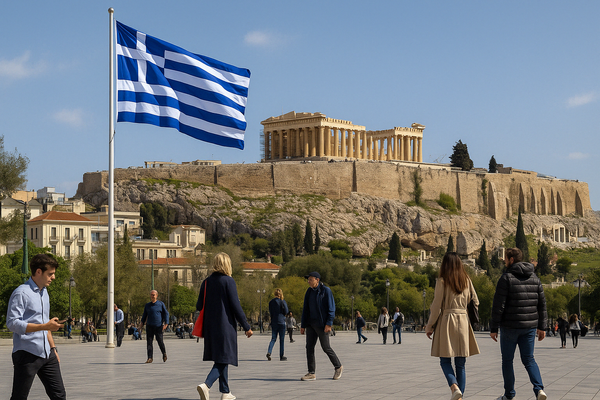
Sanctions cannot bring Russia to its knees - MOL CEO
Only 6% of Ukrainian diesel imports come from Hungary, the head of Hungarian energy giant MOL said at a conference on Saturday, 29 July.
MOL CEO Zsolt Hernadi was responding to a recent article by Netherlands daily Handelsblatt, which said MOL’s oil deliveries to Ukraine have doubled in the last six months. Since MOL – close to the Hungarian government – sources Russian oil, Ukraine’s war machine are now primarily fuelled by it, the daily wrote.
At the same time, companies that do not source their raw materials from Russia are losing market share in Ukraine. MOL has a competitive advantage over other European oil companies – the EU’s permission to continue to supply its refineries with Russian oil, Handelsblatt added.
However, Hernadi dismissed the idea that Ukrainian tanks are primarily powered by MOL diesel, saying “Poles, Lithuanians, and Romanians give Ukraine several times more oil than MOL does.
“It is a big lie that Hungary and Turkey are the biggest suppliers to Ukraine,” Hernadi added, speaking at the government-linked MCC Festival.
MOL mulled transition from Russian crude for a decade
Hernadi revealed that after Russia’s occupation of Crimea, preparations were begun to convert to non-Russian crude oil MOL’s refineries in Szazhalombatta, 25 miles south-west of Budapest, and Bratislava, south-west Slovakia.
Hernadi also explained that it was possible to build a refinery similar to the one in Schwechat, but this decision was not made before. Our colleague pointed out that the vulnerability to Russian-type oil existed for years, and it was possible to prepare for such a transition.
“If the oil pipeline stops – and I hope it doesn’t – then we can bring the oil up from the Adriatic,” Hernadi said. It is a Russian-type crude oil mixture, which European refineries are generally optimised for. Switching to a different variety makes production more difficult and expensive and requires serious investment.
Asked about the EU sanctions imposed on oil from Russia and the country consequently switching its exports to India and China, Hernadi said this “assumes that we are smart and they are stupid”, adding that “no, they are also smart”. “Sanctions cannot bring Russia to its knees,” he said.
Lawyers prevented MOL joining OTP on sanctions list
In response to another question, he said that the MOL and the OTP can only be strong if the Hungarian government is also strong, but if the government is weak, then their situation will deteriorate along with it.
According to him, the fact that the Ukrainian government recently put OTP on the list of war sponsors supporting Russia can be attributed to its relationship with the ruling Hungarian government. “I should add that they also wanted to put MOL on such a list: then we got rid of it in half a year with international lawyers,” he said.
Croatia hiked fees – MOL CEO
Croatia charges a transit fee five times higher than our comparable prices, Hernadi said the Croatians have greatly increased the transit fee for oil delivered to Hungary in recent months. “The (European) Union does nothing,” he complained.
He also said there was a similar price increase for the Ukrainians, but this is partly explained by the fact that the Russian missile strikes against critical Ukrainian infrastructure also made oil transportation more expensive for the Ukrainians.
Asked whether this is because the Ukrainians don’t ask for more or because Hungary does not want to, he said that this is simply how market conditions have developed.
Gov’t GDP growth prediction ‘probably wishful thinking’
In response to a question, he said inflation is a common national issue. Consideration should be given to when to stop fuelling inflation and when to stop raising interest rates. Based on economic figures, it is certain that difficult times are ahead.
The goals set by the government are not being met in all cases, for example, not even from the point of view of GDP. It is probably wishful thinking that GDP growth remains in the positive range, he said, adding that the situation is also worsened by the fact that many investments are not currently being made in today’s economic environment and that they will inevitably be missing in the coming years.
Excess profit tax ‘one-off’
Asked about MOL’s opposition to the “excess profits” tax, despite its record income last year, Hernadi said MOL paid an extra HUF 750bn last year, which he called “a painful amount”, especially as it could prove disadvantageous in relation to rivals. They, our competitors, could get more breathing space,” he said.
This year the situation is already different, and the prospects for next year are not very good either due to the visible changes in the world economy. According to Hernardi, if the budget takes money from MOL now because of the high profit, it could have detrimental effects in the coming years. “It’s like drugs. You can get used to it (but) it can only be used once,” he said.





